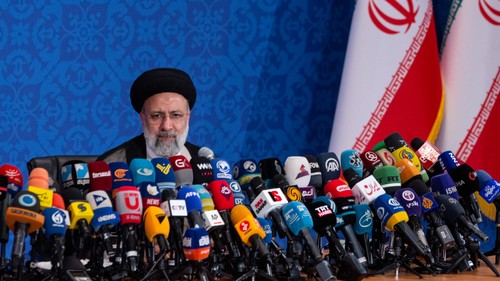 Iran's president-elect Ebrahim Raisi (photo: Arash Khamooshi/ The New York Times) Iran's president-elect Ebrahim Raisi (photo: Arash Khamooshi/ The New York Times) |
Iran's hardline president-elect Ebrahim Raisi said at first news conference since the election that his government will adhere to continuing negotiations to resume the 2015 nuclear deal. This was seen as a positive signal, although there would be a long, difficult path to the final agreement.
Positive signal for talks
Analysts say Raisi’s commitment means Iran will not leave the ongoing negotiations in Vienna, at least in the short term. Involved parties will not have to “negotiate from the beginning”, nor will negotiations be reversed when Raisi takes office to replace President Hassan Rouhani in August.
German Foreign Minister Heiko Maas said last Wednesday that Iran and the P5+1 have made progress on the JCPOA resumption negotiations. After his meeting with US Secretary of State Antony Blinken in Berlin, Maas said there will be a chance to reach an agreement when Iran has a new leader. High Representative of the EU for Foreign Affairs and Security Policy Josep Borrell said that involved parties are close to an agreement and could reach an agreement to resume the JCPOA once Ebrahim Raisi takes office.
Iran’s news agency quoted the Iranian President's Chief of Staff Mahmoud Vaezi as saying on June 23 that US and Iranian officials have agreed to remove all sanctions on insurance, petroleum, and transportation which were imposed by President Donald Trump. 1,040 sanctions are scheduled to be removed.
Negotiation progress and the new Iranian President’s commitment are good signs, but there is still a chance the negotiations could break down.
Difficult to guarantee a positive result
Recent negotiations, like those in past years, suggest that differences between the US and Iran are the biggest obstacle to reaching an agreement. The US wants Iran to return to all its obligations under the JCPOA before the US will consider lifting sanctions. Meanwhile, Iran wants the sanctions to be removed first, before any further negotiation.
The US and Iran also have conflicting views on other issues, in particular the Iraqi and Syrian battlefields, which could have a big impact on nuclear negotiations.
The US will take into consideration the attitude of important allies, like Israel and Saudi Arabia.
For the Iranian government, any further negotiations, particularly concessional steps, must take into account pressure from the domestic public, and especially from Supreme Leader Ali Khamenei.
So far, both the US and Iran are saying they don’t have any plans for a meeting between their presidents.